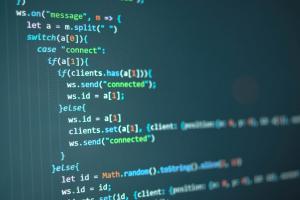Mastering the Art of Coding: A Comprehensive Guide for Beginners

-
Quick Links:
- Introduction
- Why Learn to Code?
- Choosing a Programming Language
- Basic Coding Concepts
- Setting Up Your Coding Environment
- Writing Your First Program
- Debugging Your Code
- Advanced Coding Concepts
- Hands-On Projects
- Resources and Tools
- Case Studies
- Expert Insights
- Conclusion
- FAQs
Introduction
Coding is not just a skill; it's a way of thinking. Whether you want to build apps, websites, or simply automate tasks, learning to code opens up a world of possibilities. This guide will take you through everything you need to know to start coding from scratch.
Why Learn to Code?
The digital age has transformed various industries, making coding an essential skill. Here are some compelling reasons to learn coding:
- High Demand: Coding skills are in high demand across all job sectors.
- Problem Solving: Coding teaches logical thinking and problem-solving skills.
- Creativity: Coding allows you to create and innovate in ways you never thought possible.
- Flexibility: Coding offers flexibility in terms of career options and work environments.
Choosing a Programming Language
There are numerous programming languages, each suitable for different tasks. Here’s a breakdown of popular languages:
- Python: Great for beginners and widely used in data science, machine learning, and web development.
- JavaScript: Essential for web development and building interactive websites.
- Java: Used in large systems and Android app development.
- C++: Known for high-performance applications and game development.
Basic Coding Concepts
Before writing code, you need to understand some fundamental concepts:
- Variables: Store data values.
- Data Types: Define the kind of data (e.g., integers, strings).
- Control Structures: Conditional statements (if-else) and loops (for, while).
- Functions: Reusable blocks of code that perform specific tasks.
Setting Up Your Coding Environment
To start coding, you need to set up your development environment. Here’s how:
- Install a code editor (e.g., Visual Studio Code, Sublime Text).
- Set up version control with Git.
- Install necessary compilers or interpreters based on your chosen language.
Writing Your First Program
Let’s write a simple "Hello, World!" program:
# Python example
print("Hello, World!")
Debugging Your Code
Debugging is a crucial part of coding. Here are some tips:
- Read error messages carefully and research them.
- Use debugging tools available in your code editor.
- Break your code into smaller sections to isolate errors.
Advanced Coding Concepts
Once you grasp the basics, explore advanced topics such as:
- Object-Oriented Programming (OOP)
- Data Structures and Algorithms
- Web Development Frameworks (e.g., Django, React)
Hands-On Projects
To solidify your learning, work on hands-on projects:
- Create a personal website.
- Build a simple game.
- Develop a web application.
Resources and Tools
Here are some excellent resources to help you learn coding:
- Codecademy - Interactive coding lessons.
- FreeCodeCamp - Learn coding through projects.
- W3Schools - Web development tutorials.
Case Studies
Explore how others have successfully learned coding:
Case Study: Jane’s Journey into Coding
Jane started with Python and quickly moved to data science. She utilized online resources and built projects to enhance her skills.
Case Study: Tom’s Web Development Success
Tom began by learning HTML and CSS, later mastering JavaScript. He now works as a freelance web developer, showcasing his projects online.
Expert Insights
Experts recommend the following tips for aspiring coders:
- Practice regularly to build muscle memory.
- Engage with coding communities for support and networking.
- Stay updated with the latest trends and technologies.
Conclusion
Learning to code is a journey filled with challenges and rewards. With dedication and the right resources, anyone can become a proficient coder.
FAQs
1. What is the best programming language for beginners?
Python is often recommended due to its simplicity and readability.
2. How long does it take to learn coding?
It varies by individual, but with consistent practice, basic proficiency can be achieved in a few months.
3. Do I need a degree to become a coder?
No, many successful coders are self-taught or have completed coding bootcamps.
4. What resources are best for learning coding?
Online platforms like Codecademy and FreeCodeCamp offer excellent courses.
5. Is coding difficult to learn?
It can be challenging at first, but with perseverance, it becomes easier.
6. Can I learn coding on my own?
Absolutely! Many resources are available for self-learners.
7. What are some common coding mistakes to avoid?
Common mistakes include not testing code frequently and ignoring error messages.
8. How can I practice coding?
Build projects, participate in coding challenges, and contribute to open-source.
9. What is a coding bootcamp?
A coding bootcamp is an intensive training program that teaches coding skills in a short period.
10. How do I stay motivated while learning to code?
Set clear goals, celebrate small achievements, and engage with the coding community for support.
Random Reads
- How to change wallpaper in windows 10
- How to create bricks in minecraft
- How to create citations for google maps
- How to shut down computer using notepad
- How to remove virus from flash drive
- How to reset your graphics drivers
- How to reset water heater
- How to downgrade minecraft
- Increase water pressure
- Increase website traffic